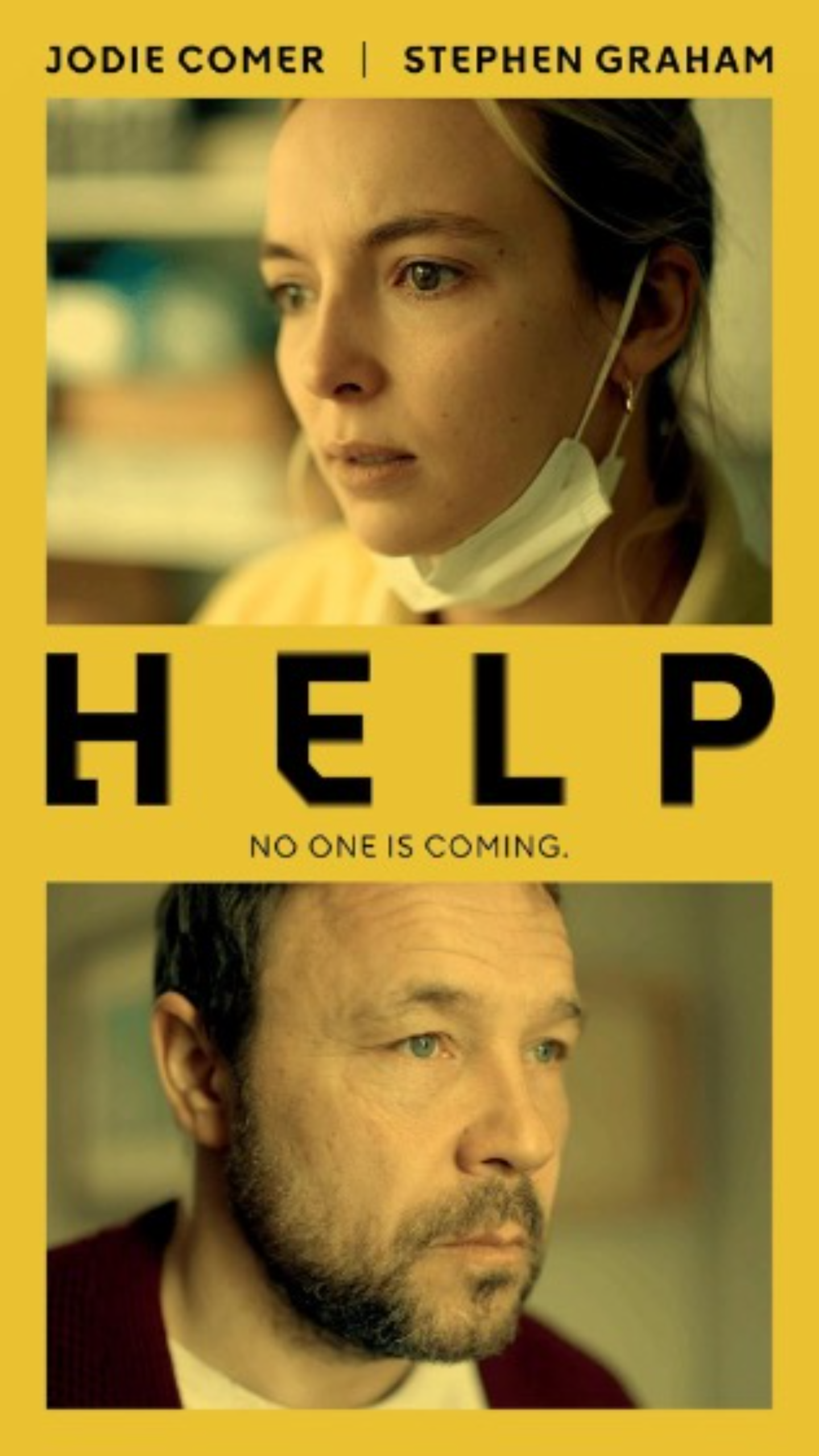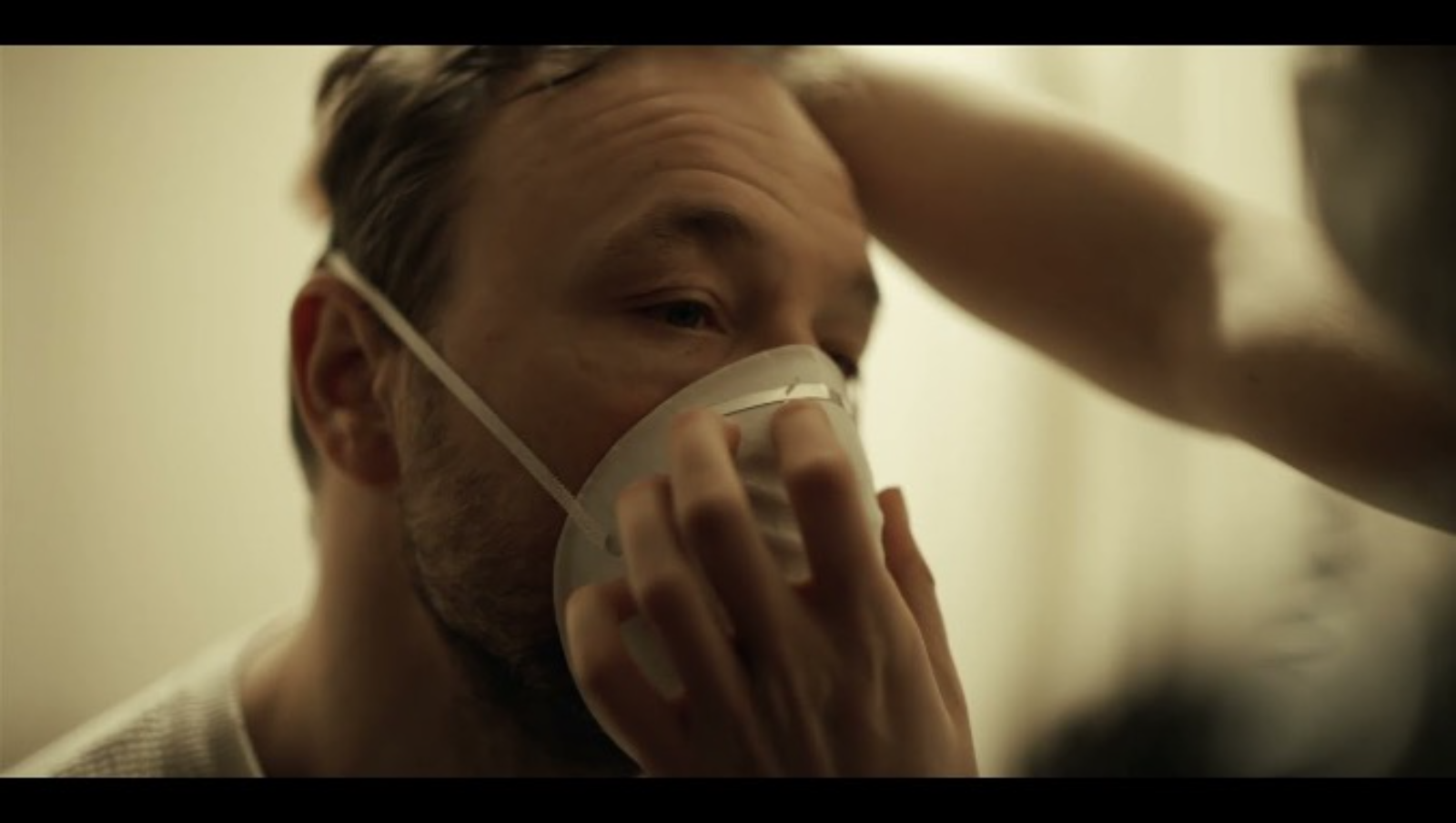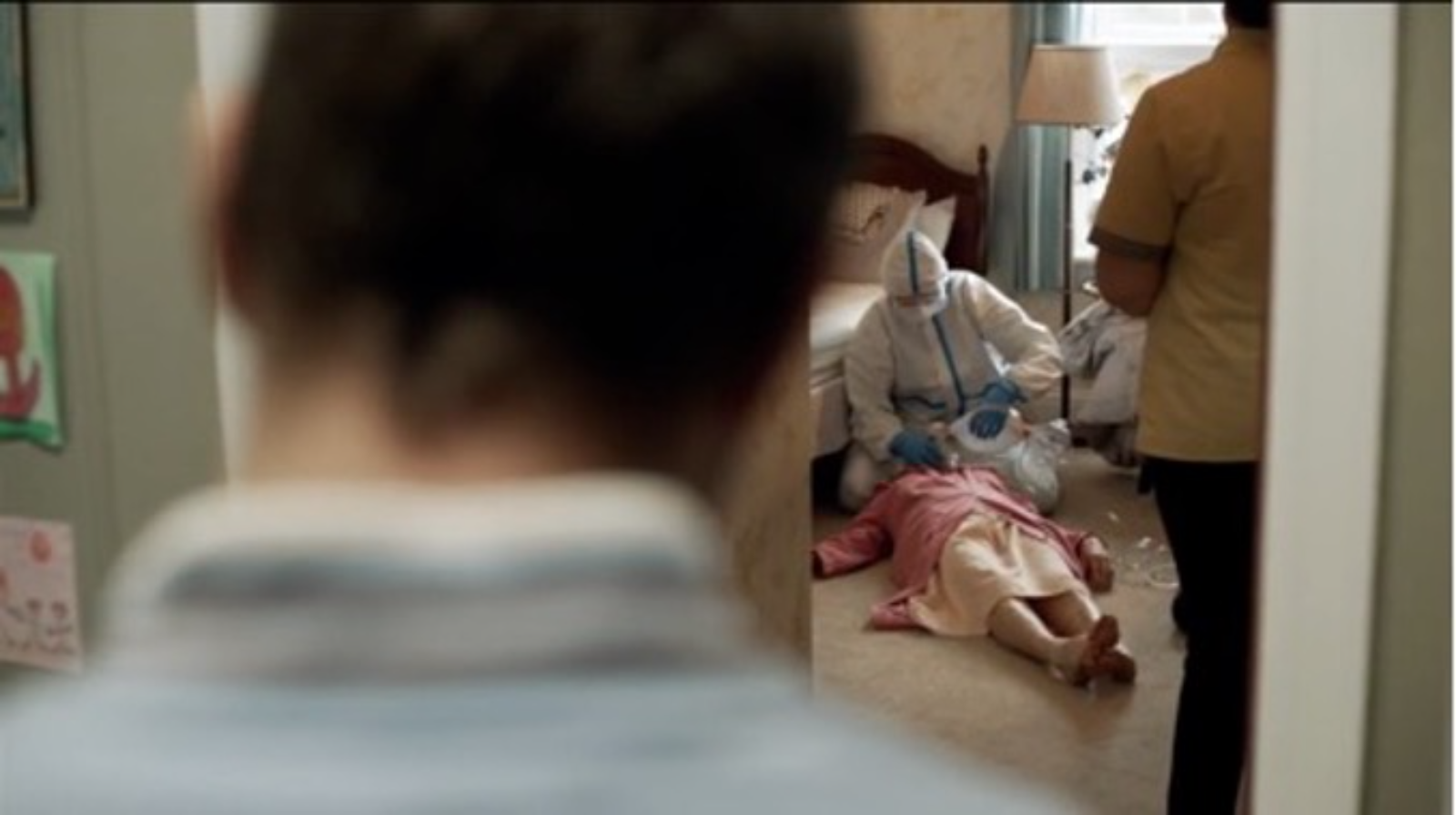Help is a harrowing, politically charged British television drama that exposes the devastating impact of the COVID-19 pandemic on the UK’s social care system. Directed by Marc Munden and written by Jack Thorne, the film stars Jodie Comer as Sarah, a newly hired care assistant at Bright Sky, a residential care home in Liverpool, and Stephen Graham as Tony, a resident with early-onset Alzheimer’s. Set in March 2020, the early period of the pandemic, Help dramatizes the collapse of support systems and the moral burden placed on frontline care workers as the pandemic exposes deep, pre-existing flaws in public health policy and care infrastructure. From the moment the pandemic hit, the film presents a grim portrayal of the UK’s fragmented healthcare response: underprepared, underfunded, and profoundly unequal. Residential care homes like Bright Sky were deprioritized. Supplies of personal protective equipment (PPE) were scarce, and guidance was confusing or absent altogether, leaving both staff and residents vulnerable.
One particularly distressing moment shows Sarah, alone on the night shift, desperately trying to get help for a resident named Kenny who is experiencing severe COVID symptoms. She calls the national COVID hotline and NHS 111, only to find that no ambulance is available. Angry and frightened, Sarah’s emotional breakdown, “What if it wasn’t calling from a care home”, “Care home didn’t matter? Didn’t matter anymore, didn’t it? Look, he needs you and needs me and you’re not interested” (49:16–49:27), suggest the helplessness of frontline workers trapped in a broken system and the abandonment of care homes across the country.
Essentially, Help is an activist film and is straightforward about its central social and political message. Its storytelling is gripping, and it makes care workers and marginalized populations visible by providing a potent narrative. A pivotal moment comes when Sarah breaks the fourth wall by staring into the camera directly, with her infuriated speech, confronting viewers with the systemic failures exposed by the pandemic: “So it is way the country is now? Keep our eyes down to the rest of it. Yeah, because we see people queuing up for food banks, and we see people, people lying on the street, and we see disabled people being left out, we feel sorry. We can’t cope, we can’t cope with Tories (slang for or Conservative and Unionist Party) at all. Not anymore, on the public health condition, wasn’t there. When did our lives stop being worth the same, eh?” (01:36:19–01:36:56). This moment encapsulates the film’s core message: it refuses to frame the pandemic as an individual struggle of strength or resilience, but a collective suffering. It indicts political negligence, highlighting how government failures allows the coronavirus crisis in care homes and beyond to spiral, and reversely impact us all.
 ,
,  , and
, and 
Image Captions:
Image 1. Promotional poster. Help, directed by Marc Munden, performance by Jodie Comer and Stephen Graham, 2021. Image via https://www.imdb.com/title/tt13649036/.Image 2. Sarah helping Tony wear a mask as she requests him to help move Kenny, the fatally ill patient. Screenshot of film still, Help, directed by Marc Munden, performance by Jodie Comer and Stephen Graham, 2021. Image via https://mortystv.com/blog/2021/12/07/acorn-tv-sets-premiere-date-for-powerful-and-award-winning-film-help-video/.
Image 3. Tony seeing a resident at the care home being resuscitated. Screenshot of film still, Help, directed by Marc Munden, performance by Jodie Comer and Stephen Graham, 2021.
Citation: Help. Directed by Marc Munden, performance by Jodie Comer and Stephen Graham. Chanel 4, September 2021. FILM | UK. yc
Source Type: Film and Theatre
Country: UK
Date: 16-Sep-2021
Keywords: Activist Film, Care Home, Care Worker, Drama, Fiction, Lockdown, Social Issue, and UK